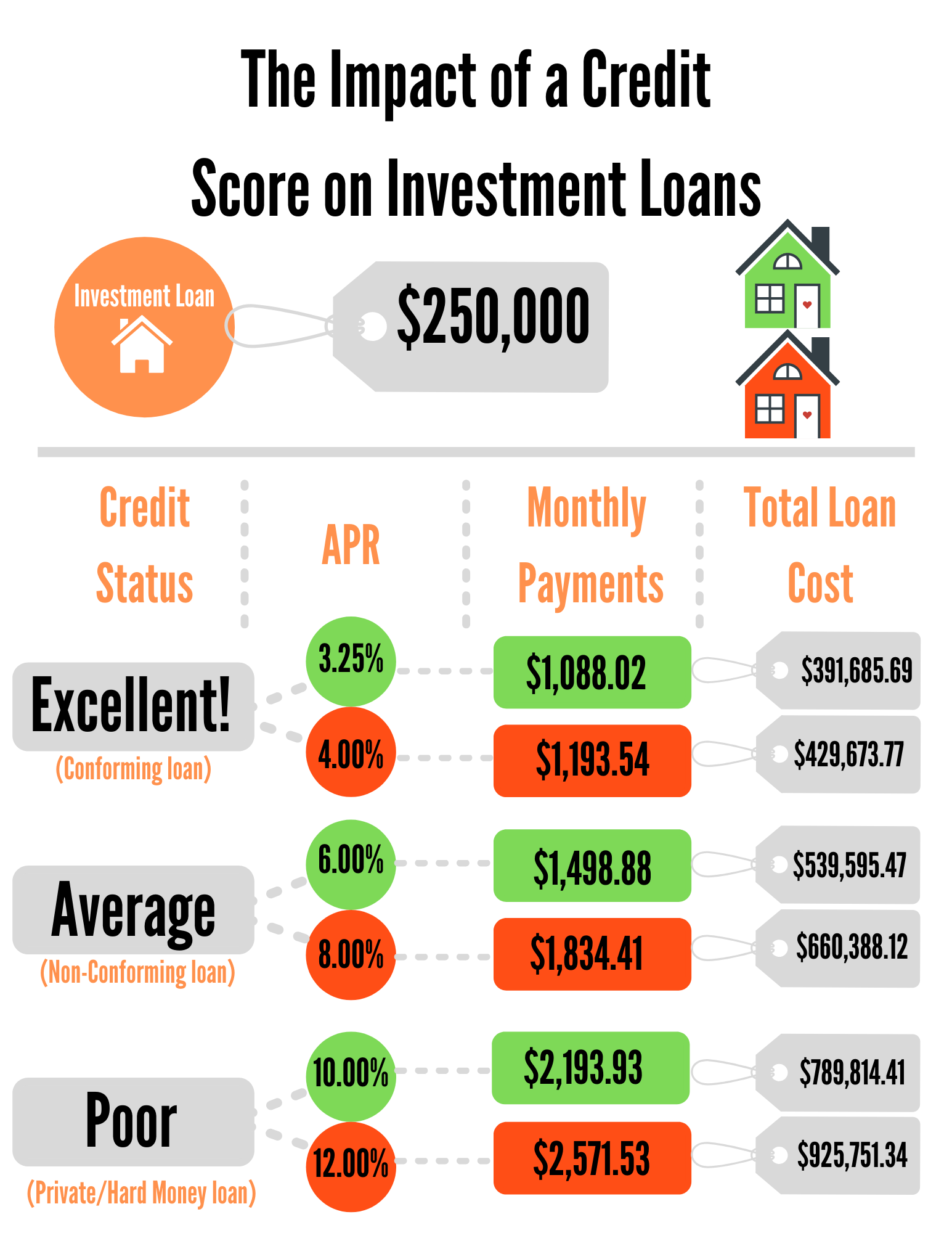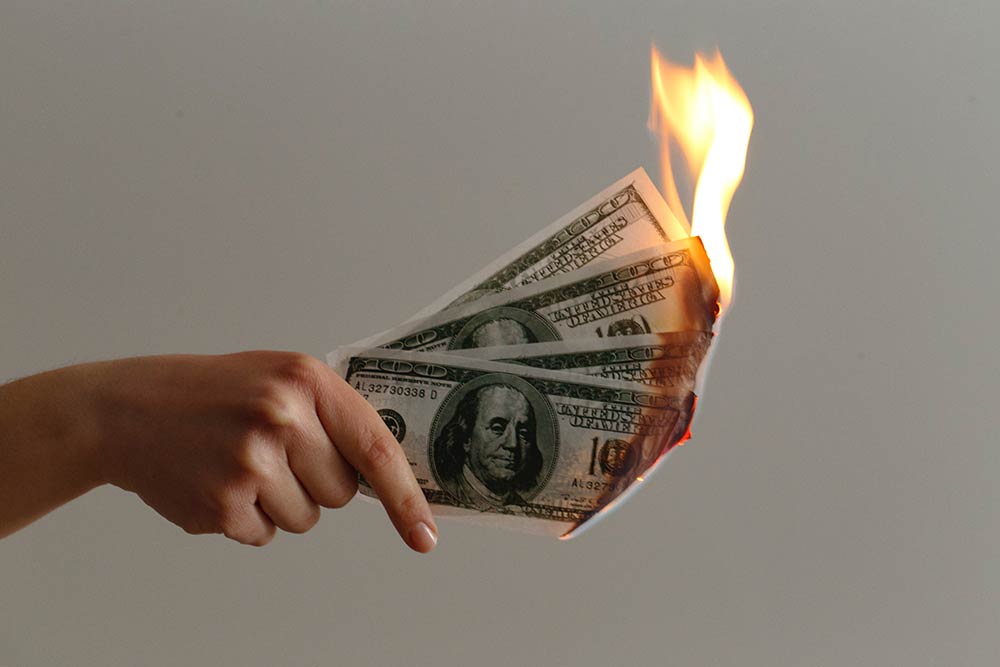How Your Credit Score Impacts Your Real Estate Investments
How Your Credit Score Impacts Your Real Estate Investments
Did you know your credit score impacts your wallet…and the cash flow you get from your real estate investments?
Because the better your credit score, the better, easier, and more profitable your investments will be. Because your credit score determines your interest rates, the amount of money you need to put into each deal, and what kind of loans are available. If you have a low credit score, then you can expect to:
- Pay high interest rates.
- Put more of your money into each deal.
- And have fewer loan options available.
So, yeah. Your credit score matters.
But…what is a credit score?
Well, basically, it’s a number between zero and 850, and this number helps lenders decide if they can trust you with their money.
You see, financial institutions don’t know you. Unfortunately, you’re just another face in the crowd. So, in order to get to know you better, they created a scoring system that helps them understand you and your financial habits.
Again, you want to aim for a high credit score. Generally speaking, anything below 700 is going to cost you time and money, and lead to a lot of disappointment and frustration.
How does your credit score get calculated?
Well, multiple factors get considered, but the two biggest ones are your payment history and amounts owed.
First, your payment history is exactly what is sounds like. Financial institutions can see how you pay your bills, how often you pay them, how late you pay them, and if you pay them at all.
As for amounts owed, this is how you utilize your credit lines.
For example, if Jane and Joe both owe $1,000 on their credit cards, they can still have very different credit scores. Because Jane’s card is maxed out at $1,000, while Joe’s credit card is maxed out at $5,000.
So, creditors see Jane as a risk, because she’s not managing her credit very well. She’s 100% tapped out.
Joe, on the other hand, isn’t a risk, because he still has another $4,000 at his disposal. So, unlike Jane, he’s only using 20% of his available credit. And creditors like that!
That’s why, at the end of the day, Joe’s credit score will be higher than Jane’s.
So, what kind of score should you really aim for? Well, for the best loans with the best rates, you’ll want a score that’s higher than 740. Anything above 800 is considered exceptional. If you have this kind of score, then you’ll likely always hear “yes” from lenders, rather than “no.”
Now, if your score lands between 670 and 739, then you’ll still be in a good position for a decent loan with decent rates.
Anything below 670 is…not so good. But that’s okay, because there are easy ways to quickly raise your credit score.
#1: Add more credit to your credit line
Remember Jane? Well, she can go to her credit card company and ask them to raise her limit from $1,000 to $3,000. That would drastically impact her credit score, because she’ll go from using 100% of her available credit to only 33%.
#2: Get authorized on someone else’s GOOD credit account
A good credit account means it’s paid on time, it’s existed for a while, and it has a low balance. So, think about asking a parent, a friend, or someone else you trust if they’ll add you as an authorized user to their credit card account.
#3: Go private
This means borrowing money from someone or someplace so you can pay off all of your credit cards for 60 or so days. During that time, you can apply for more credit.
Basically, your credit score determines your path. If you want to pay lower rates, use less of your own money, and have more loan options, then you need to focus on raising your score.
Just remember, a high credit score will make your fix and flips, rentals, and other real estate investments a whole lot easier and way more profitable.
Happy investing!



















